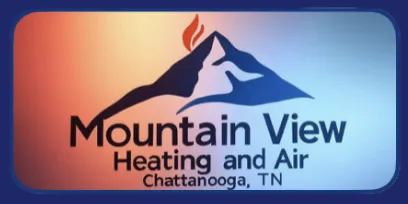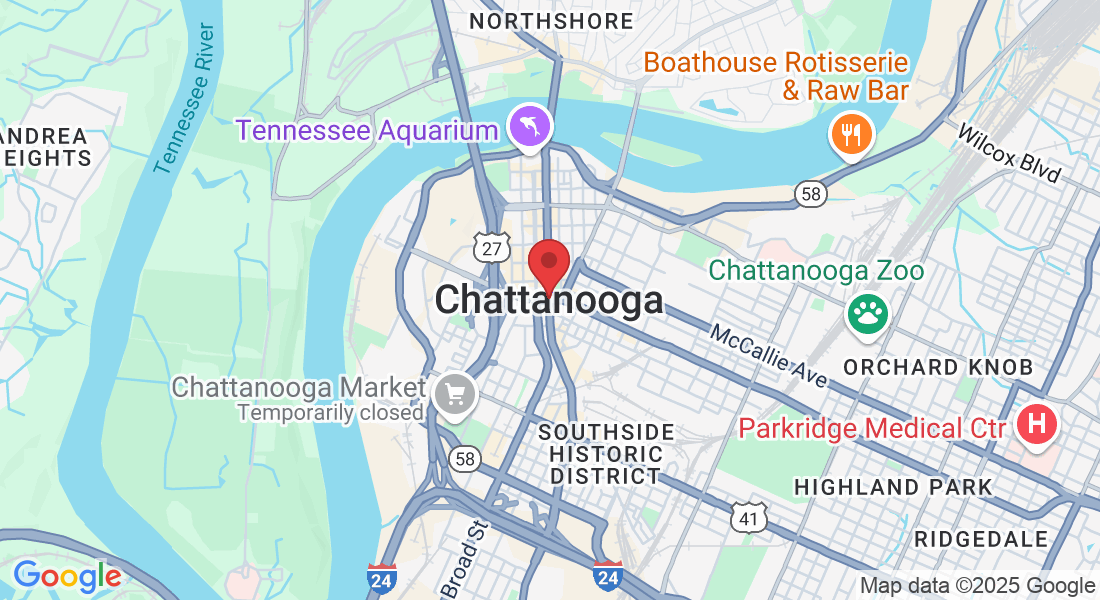
What Size HVAC System Do I Need? A Simple Guide for Homeowners
What Size HVAC System Do I Need? A Simple Guide for Homeowners
When it comes to keeping your home comfortable year-round, the size of your HVAC system matters more than you might think. A system that’s too small won’t keep up on those hot, humid Chattanooga days — and one that’s too big can short cycle, waste energy, and leave your home feeling clammy.
The right-sized system is key to efficient performance, lower energy bills, and long-term comfort — but figuring out what “right size” really means isn’t as simple as checking your square footage.
In this guide, we’ll break down how HVAC sizing works, why it’s so important for homes in the Chattanooga area, and what to expect when you work with a professional to get it right.
Why Proper HVAC Sizing Is Critical
Getting the size of your HVAC system just right is one of the most important steps in creating a comfortable, energy-efficient home. Unfortunately, it's also one of the most commonly overlooked — especially in areas like Chattanooga where both extreme heat and high humidity come into play.
Here’s what can go wrong when a system is the wrong size:
❌ Too Small:
Runs constantly, driving up your energy bill.
Can’t keep your home cool during Chattanooga’s summer heat or warm during winter cold snaps.
May wear out faster due to overuse.
❌ Too Big:
Cools your home too quickly, causing the system to shut off before it removes enough humidity.
Creates a cold but clammy indoor environment — especially unpleasant in the Tennessee Valley.
Short cycling (frequent starts and stops) increases wear and tear and reduces efficiency.
✅ Just Right:
Runs smooth and steady, maintaining consistent comfort.
Efficiently manages both temperature and humidity.
Saves money on energy bills and lasts longer with fewer breakdowns.
Local Tip: In Chattanooga, it’s not just about cooling — it’s about humidity control. Oversized systems might cool fast, but they won’t dehumidify properly, leaving your home feeling sticky even when the thermostat says it’s cool.
Factors That Determine HVAC Size
There’s no one-size-fits-all answer when it comes to HVAC systems — especially in a place like Chattanooga, where weather conditions, home styles, and insulation can vary widely from one neighborhood to the next.
Here are the most important factors professionals consider when determining the right HVAC size for your home:
🏠 Square Footage
The starting point — but not the only factor. A larger home generally needs more heating and cooling power, but layout and ceiling height matter too.
🧱 Insulation Quality
Homes in older Chattanooga neighborhoods like St. Elmo or Highland Park may have little or aging insulation, which affects how much heat enters or escapes the home.
🪟 Windows and Sun Exposure
The number, size, and type of windows (single-pane vs. double-pane) impact how much heat enters your home. South-facing homes or those with large bay windows take on more heat and need extra consideration.
📐 Ceiling Height
Taller ceilings mean more air to heat or cool. A 2,000 sq ft home with vaulted ceilings may need a larger system than a home of the same size with standard 8-foot ceilings.
🌞 Sunlight and Shade
Is your home shaded by trees or fully exposed to the sun? That impacts how quickly it heats up in the summer — and how hard your A/C has to work.
🧭 Home Layout
An open floor plan allows air to circulate more freely. Older homes with more rooms and doorways might need special zoning or airflow adjustments to maintain comfort evenly.
📍 Local Climate Zone
Chattanooga is located in Climate Zone 4A, which includes hot, humid summers and cool winters — a combination that puts serious demands on both your A/C and heating system.
Together, these factors determine how much heating or cooling your home actually needs — and why guessing based on square footage alone can lead to an oversized or undersized system.
What Is a Manual J Load Calculation?
If you’ve ever heard a contractor say, “We’ll just match what your neighbor has,” or “Let’s go with a 3-ton system for your square footage,” — it’s a red flag. The most accurate way to determine HVAC size is through a Manual J Load Calculation — the industry standard for sizing residential heating and cooling systems.
So, what is it?
A Manual J Load Calculation is a room-by-room analysis that evaluates how much heating and cooling your home truly needs. It accounts for dozens of details, including:
Square footage and ceiling height
Number and type of windows and doors
Insulation levels
Ductwork design and efficiency
Air leakage in the home
Local weather data — including Chattanooga’s temperature swings and humidity
This calculation helps HVAC professionals size a system that matches your home’s specific needs, rather than over- or underestimating based on rough guesses.
Why It Matters for Chattanooga Homes:
Chattanooga’s location in the Tennessee Valley means humid summers, unpredictable springs, and the occasional winter freeze. A proper load calculation ensures your system handles it all — while keeping your indoor air comfortable and your energy bills under control.
At Mountain View Heating and Air, we offer Manual J load calculations as part of every system replacement estimate, so you can feel confident you’re getting exactly what your home needs — nothing more, nothing less.
Common HVAC Sizes (and What They Mean)
When choosing a new HVAC system, you'll likely hear terms like “2-ton” or “3.5-ton unit.” But these numbers don’t refer to the weight of the system — they refer to its cooling capacity.
Here’s a simple breakdown:
1 ton = 12,000 BTUs (British Thermal Units) per hour
The more tons, the more air the system can heat or cool in a given amount of time.
But bigger isn’t always better — the goal is to match the size of the system to the specific needs of your home.
🔢 Typical HVAC Size Ranges:
Home TypeEstimated Size
Small apartment or condo1.5 – 2 tons
Small single-family home (1,000–1,500 sq ft)2 – 2.5 tons
Medium home (1,500–2,000 sq ft)3 – 3.5 tons
Larger home (2,000–2,500+ sq ft)4 – 5 tons
These estimates can vary based on insulation, layout, ceiling height, and Chattanooga’s climate demands — which is why a professional load calculation is always the smart route.
⚠️ A Word of Caution:
Don’t rely on your neighbor’s system size or a “rule of thumb” based on square footage alone. Your home could be significantly different in insulation quality, sun exposure, or ductwork.
Local Tip: Many homes in Chattanooga’s historic districts or hillsides have unique airflow challenges that require zoning, duct adjustments, or multi-stage systems — not just a bigger unit.
Why Bigger Isn’t Always Better
It’s a common misconception: if your HVAC system isn’t keeping up, just get a bigger one. But in reality, an oversized system can cause more problems than it solves — especially in a climate like Chattanooga’s, where managing humidity is just as important as controlling temperature.
Here’s what happens when your system is too big:
⚡ Short Cycling
An oversized system cools (or heats) your home so quickly that it shuts off before it completes a full cycle. This constant starting and stopping causes:
Increased wear and tear on the system
Shortened equipment lifespan
Higher energy bills
💧 Poor Humidity Control
In Chattanooga’s humid summers, your system needs to run long enough to remove moisture from the air — not just drop the temperature. Oversized units don’t run long enough to do that effectively, leaving your home cool but clammy.
🔊 More Noise
Large units tend to be louder, especially if installed in smaller homes or tight spaces without proper airflow design.
💸 Higher Upfront Cost, Lower Long-Term Efficiency
Larger units cost more to install and may actually be less efficient over time, especially when they’re constantly cycling on and off.
✅ Right-Sizing = Better Comfort
A properly sized system runs at the right pace, keeps temperatures consistent, removes humidity, and helps you save money year after year.
Bottom line? Bigger isn’t better — smarter is better. And in Chattanooga, that means a system built to handle both the heat and the humidity without overdoing it.
How to Get the Right Size System for Your Home
Choosing the right HVAC size isn’t guesswork — it’s a science. And the best way to get it right is by working with a local professional who understands Chattanooga’s unique climate, home styles, and building codes.
Here’s how the process should work:
🏠 1. Schedule a Professional In-Home Assessment
An HVAC expert will visit your home to take detailed measurements, inspect insulation, check windows, and evaluate your current system. They'll gather the data needed to run a Manual J Load Calculation — not just rely on square footage or your old unit’s specs.
📊 2. Get a Custom Load Calculation
This is the most accurate way to determine the ideal HVAC size for your home. It accounts for your home’s design, materials, and Chattanooga’s climate zone to ensure comfort, efficiency, and performance.
🛠️ 3. Consider Your Comfort Goals
Now is a great time to discuss upgrades like:
Two-stage or variable-speed systems
Smart thermostats
Indoor air quality improvements (great for allergy season in the Tennessee Valley!)
👷♂️ 4. Work with a Trusted Local Expert
At Mountain View Heating and Air, we provide free consultations and precise system sizing for homeowners throughout Chattanooga and surrounding areas. We don’t oversell or undersell — we right-size. Always.
📞 Call us at 423-556-8671 to schedule a no-obligation system assessment.
When it comes to heating and cooling your home, size really does matter. An HVAC system that's too big or too small can lead to higher energy bills, uneven temperatures, humidity problems, and premature system failure — all of which are especially frustrating in a climate like Chattanooga’s, where summers are sticky and winters can be surprisingly brisk.
By understanding what factors go into proper HVAC sizing — and working with a local expert who performs a Manual J load calculation — you can make sure your next system is tailored to your home, your comfort needs, and your long-term budget.
Ready to find out what size system is right for your home?
📞 Call Mountain View Heating and Air today at 423-556-8671 for a free consultation and load calculation. We’ll help you get the perfect fit — no guesswork, no overselling, just the right solution for your Chattanooga home.


